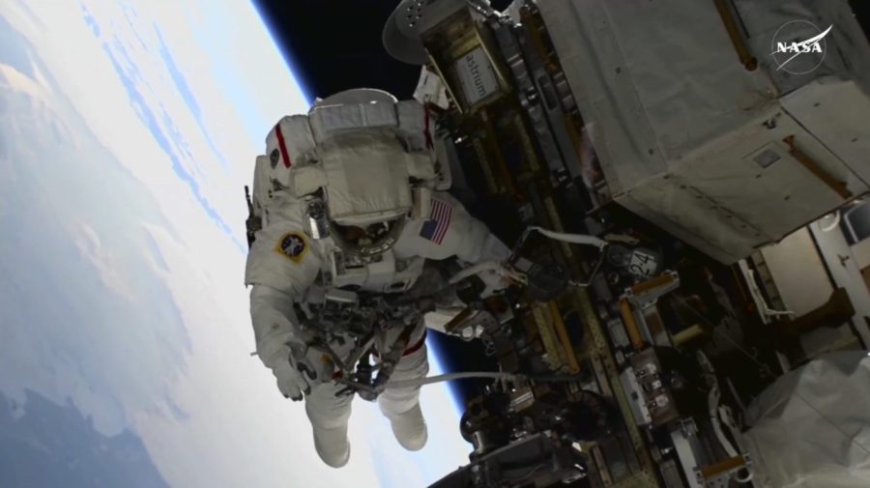Proposed cuts to NASA science would be disastrous
The president’s proposed budget for 2026 cuts the agency by nearly 25 percent. That would be the largest single-year cut in NASA’s history, taking it back to a level last seen in 1961.

“No bucks, no Buck Rogers.”
This quote, from the 1983 movie “The Right Stuff,” encapsulates the idea that ambitions in space do not come cheap. With that in mind, what are the prospects for NASA as its budget wends its way through Congress?
Adjusted for inflation, NASA’s current budget is 25 percent lower than it was in the early 1990s. The agency accounts for just 0.37 percent of federal spending. NASA has always enjoyed strong public support — its net favorability rating is plus-55 percentage points, behind only the Park Service and the Postal Service.
NASA’s effects are not felt only in deep space. The agency has an Earth Science Division that operates 20 satellites and provides data to hundreds of research groups. The data helps scientists model the atmosphere, oceans and polar regions, and monitor global land use and climate change. NASA also generates economic and social benefits, with $5 billion of its budget going into U.S. manufacturing and over a million citizen scientists involved in its missions.
Next year, the outlook for NASA will be dire. The president’s proposed budget for 2026 cuts the agency by nearly 25 percent. That would be the largest single-year cut in NASA’s history, taking it back to a level last seen in 1961.
While human exploration beyond the Earth is protected, NASA science would suffer a draconian cut of 47 percent. This would shut down 41 space missions, including 19 that are currently active and producing valuable science, a waste of $12 billon of taxpayer investment.
The budget has met with strong criticism from space industry leaders and members of Congress, and concern from NASA’s international partners. NASA has already been underfunded for years. A 2024 report from the National Academies called for NASA to greatly boost spending on its aging infrastructure, much of which dates back to the 1960s.
Former NASA leaders have weighed in. John Grunsfeld, who flew five space shuttle missions and was associate administrator of the Science Mission Directorate, said, “The proposal for the NASA science budget is, in fact, cataclysmic for U.S. leadership in science.”
Bill Nelson, NASA’s administrator from 2021 to 2025, worries about the geopolitical implications, writing, “The administration has presented Congress with a blueprint for falling catastrophically behind on space exploration just as China and other nations are surging head.” Every living former NASA science chief is opposed to the proposed cuts.
All this comes while NASA is rudderless. Jared Isaacman, President Trump’s initial pick to be NASA administrator, was on the cusp of Senate confirmation when his nomination was pulled. Acting Administrator Janet Petro did not have the political capital to advocate for the agency. At a recent town hall, she struggled to defend the budget, saying “There’s a lot of science that can still be done with $4 billion.” The town hall was not publicized outside of NASA, and video of the event has been taken down.
The newly appointed interim administrator is Transportation Secretary Sean Duffy, a former reality television personality with no space experience.
NASA’s fate is now in the hands of Congress. The agency has enjoyed bipartisan support in the past, but that will be tested in the current budget cycle. The early signs were optimistic, but the White House may be working to terminate dozens of science missions before Congress can act. However, the Senate appropriations committee has recently pushed back on the administration’s cuts. The budget battle is joined.
A shrunken NASA would have difficulty continuing the work that put clever rovers on Mars and created telescopes that discovered Earth-like planets and gave us views of the distant cosmos across the electromagnetic spectrum.
Chris Impey is a University Distinguished Professor of Astronomy at the University of Arizona. He does research on observational cosmology and astrobiology and writes extensively about space policy and the future of space exploration.
What's Your Reaction?
























